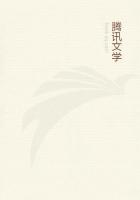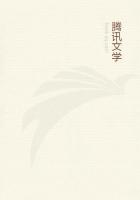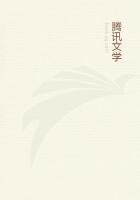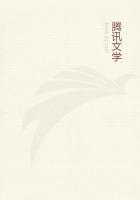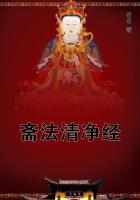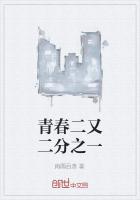Halsted Street is thirty-two miles long, and one of the great thoroughfares of Chicago; Polk Street crosses it midway between the stockyards to the south and the shipbuilding yards on the north branch of the Chicago River. For the six miles between these two industries the street is lined with shops of butchers and grocers, with dingy and gorgeous saloons, and pretentious establishments for the sale of ready-made clothing. Polk Street, running west from Halsted Street, grows rapidly more prosperous; running a mile east to State Street, it grows steadily worse, and crosses a network of vice on the corners of Clark Street and Fifth Avenue. Hull-House once stood in the suburbs, but the city has steadily grown up around it and its site now has corners on three or four foreign colonies. Between Halsted Street and the river live about ten thousand Italians--Neapolitans, Sicilians, and Calabrians, with an occasional Lombard or Venetian. To the south on Twelfth Street are many Germans, and side streets are given over almost entirely to Polish and Russian Jews. Still farther south, these Jewish colonies merge into a huge Bohemian colony, so vast that Chicago ranks as the third Bohemian city in the world. To the northwest are many Canadian-French, clannish in spite of their long residence in America, and to the north are Irish and first-generation Americans. On the streets directly west and farther north are well-to-do English speaking families, many of whom own their own houses and have lived in the neighborhood for years; one man is still living in his old farmhouse.
The policy of the public authorities of never taking an initiative, and always waiting to be urged to do their duty, is obviously fatal in a neighborhood where there is little initiative among the citizens. The idea underlying our self- government breaks down in such a ward. The streets are inexpressibly dirty, the number of schools inadequate, sanitary legislation unenforced, the street lighting bad, the paving miserable and altogether lacking in the alleys and smaller streets, and the stables foul beyond description. Hundreds of houses are unconnected with the street sewer. The older and richer inhabitants seem anxious to move away as rapidly as they can afford it. They make room for newly arrived immigrants who are densely ignorant of civic duties. This substitution of the older inhabitants is accomplished industrially also, in the south and east quarters of the ward. The Jews and Italians do the finishing for the great clothing manufacturers, formerly done by Americans, Irish, and Germans, who refused to submit to the extremely low prices to which the sweating system has reduced their successors.
As the design of the sweating system is the elimination of rent from the manufacture of clothing, the "outside work" is begun after the clothing leaves the cutter. An unscrupulous contractor regards no basement as too dark, no stable loft too foul, no rear shanty too provisional, no tenement room too small for his workroom, as these conditions imply low rental. Hence these shops abound in the worst of the foreign districts where the sweater easily finds his cheap basement and his home finishers.
The houses of the ward, for the most part wooden, were originally built for one family and are now occupied by several. They are after the type of the inconvenient frame cottages found in the poorer suburbs twenty years ago. Many of them were built where they now stand; others were brought thither on rollers, because their previous sites had been taken by factories. The fewer brick tenement buildings which are three or four stories high are comparatively new, and there are few large tenements.
The little wooden houses have a temporary aspect, and for this reason, perhaps, the tenement-house legislation in Chicago is totally inadequate. Rear tenements flourish; many houses have no water supply save the faucet in the back yard, there are no fire escapes, the garbage and ashes are placed in wooden boxes which are fastened to the street pavements. One of the most discouraging features about the present system of tenement houses is that many are owned by sordid and ignorant immigrants. The theory that wealth brings responsibility, that possession entails at length education and refinement, in these cases fails utterly. The children of an Italian immigrant owner may "shine" shoes in the street, and his wife may pick rags from the street gutter, laboriously sorting them in a dingy court. Wealth may do something for her self-complacency and feeling of consequence; it certainly does nothing for her comfort or her children's improvement nor for the cleanliness of anyone concerned. Another thing that prevents better houses in Chicago is the tentative attitude of the real estate men. Many unsavory conditions are allowed to continue which would be regarded with horror if they were considered permanent. Meanwhile, the wretched conditions persist until at least two generations of children have been born and reared in them.
In every neighborhood where poorer people live, because rents are supposed to be cheaper there, is an element which, although uncertain in the individual, in the aggregate can be counted upon. It is composed of people of former education and opportunity who have cherished ambitions and prospects, but who are caricatures of what they meant to be--"hollow ghosts which blame the living men." There are times in many lives when there is a cessation of energy and loss of power. Men and women of education and refinement come to live in a cheaper neighborhood because they lack the ability to make money, because of ill health, because of an unfortunate marriage, or for other reasons which do not imply criminality or stupidity. Among them are those who, in spite of untoward circumstances, keep up some sort of an intellectual life; those who are "great for books," as their neighbors say.

